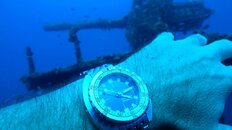You are confusing issues here and mixing things up, let's take it one step at the time:
because you dont understand even the basics of diving science and are relying on a computer and only a computer to keep you alive.
First, knowing dive tables doesn't mean understanding deco theory or understand what the various terms and phrases mean and their implications on a diver's body. You can do dive tables yet do not comprehend their implications or the ramifications of violating dive table rules. The most important concept to know and understand is deco theory not dive tables.
if your computer wigs out, and gives you bad information, you need to have enough knowledge to:
1) know that information is not correct.
2) know what to do next, knowing the computer cannot be relied upon.
This means that one has to understand how to use their dive computers and comprehend the information it is giving him, nothing to do with dive tables. One has to understand deco theory and understand the implications and meaning of the various dive computer terminology, e.g., NDL, Scrolling, Deco stop, safety stop, etc. You do NOT need to know or understand how to use dive tables for this at all.
a dive computer should always be a convenience, and not a dependence.
A dive computer is a tool that provides accurate information to enhance safety and make the proper decisions during our dive. One needs to know how to read the information the DC is giving and its implications to be able to utilize the dive computer properly and safely.
if you are at 100' and your computer is telling you that you have 130 minutes of NDL....are you going to just blindly follow that advice? well if you are dependent on that computer, and youve never even bothered to understand dive tables, why would you have any reason to doubt it?
This has NOTHING to do with understanding dive tables at all, this has to do, again, with understanding deco theory and the various terms and their ramifications. The term "NDL" isn't peculiar to dive tables, not at all. "NDL" has to do with decompression and understanding what it means and the limits it sets isn't exclusive to knowing how to use dive tables.
There is at least one international diver training agency that doesn't require teaching dive tables to their entry level students, they require teaching the use of dive computers and teaching and understanding decompression with the associated terms.
One other important factor here is that dive computes work on real time calculations of multi-level diving where dive tables are static square profile tables. They don't correlate to each other much.




